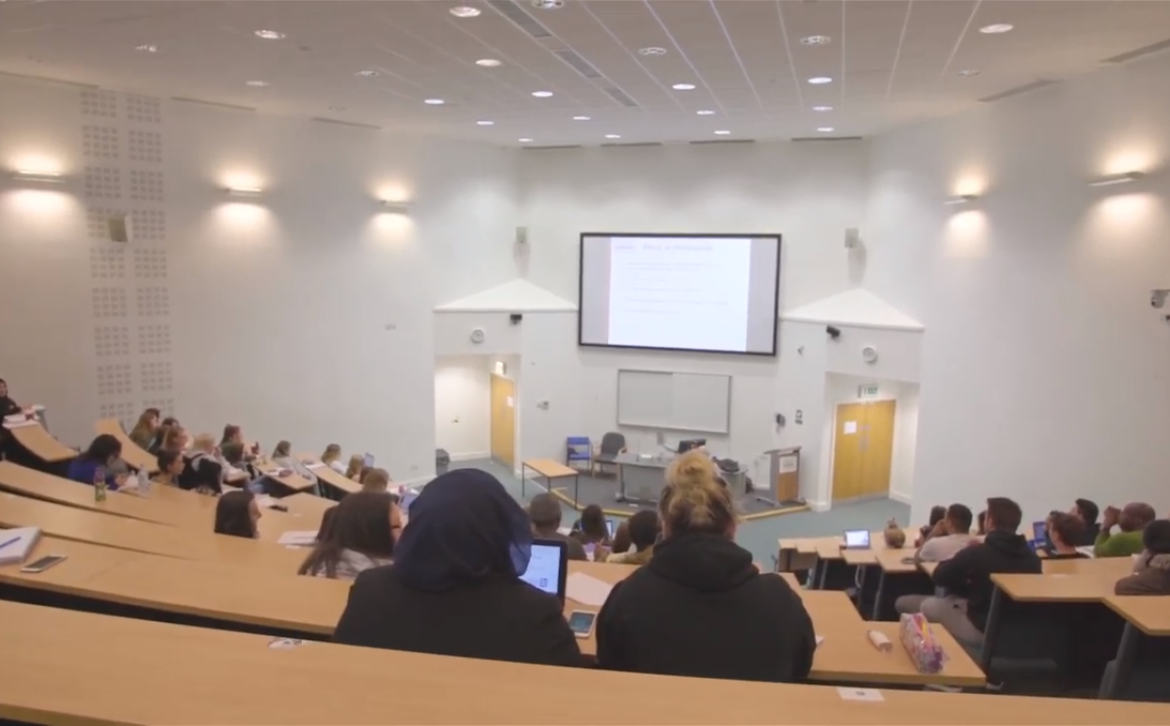Studying Counselling and Psychotherapy at Salford
So you’ve applied to study Counselling and Psychotherapy, we've made you an offer, but you’re still deciding or have further questions?
We want to make sure you have all the information you need as you get ready to study at Salford. We hope the information below helps you in your decision making. If you have any further questions, simply get in touch with us at our course enquiries page.
Our Facilities
We have recently opened a specialist Counselling Centre which is used to help train students to become professional counsellors and psychotherapists.
The suite, featuring therapeutic areas where one-to-one, family and group interactions can occur, is open to members of the local community. The University is working closely with local organisations to make best use of the facility, and the Centre provides placement opportunities for our students.

What our students say
"Salford offers more of a variety of the types of therapy in comparison to other universities, and this was something I was really interested in. Salford quickly train you up as a person centred therapist but give you options or ideas when it comes to other modalities and that’s what I loved. If you speak to any of the therapist tutors here all of them have varying degrees of experience and different modalities and they’re all very research focused as well."
What can I expect my timetable to look like?
In the first semester students will complete the following modules:
- Counselling and Psychotherapeutic Approaches
- Introduction to Counselling Philosophy and Research
- Counselling and Communication Skills
The times and days of these sessions will vary across the programme but will consist of a mixture of lectures and group sessions. Class contact for the full time option is around three half days per week for three modules per semester.
Do we need to provide our own DBS check?
DBS checks are completed at the University during the registration period. Information about DBS checks will be sent to you at this time.
Are there any books you recommend that would help me prepare?
Here is some of the recommended reading from the Counselling and Psychotherapeutic Approaches module:
- Kahn, M. (2003). Basic Freud: psychoanalytic thought for the twenty first century. New York: Basic Books.
- Mearns, D. & Thorne, B. (2007). Person-centred counselling in action. (3rd edn). London: SAGE.
- Sanders, P. (2011). First Steps in Counselling: students’ companion for introductory courses. Ross-on-Wye: PCCS.
What are the group sizes like on the course?
This depends on the module, but lectures are bigger groups of students, for example the lectures for Counselling and Psychotherapeutic Approaches will have over 100 students but the skills groups that focus on the learnings from these lectures will be smaller with around 20 students. For skills practice later in the course, you will be working in smaller groups of around 10 to 15 students.
Where will I complete the professional practice aspect of the course?
There are a number of different placement opportunities available. A large percentage of our students work in schools with children via Place2Be, and others work within the NHS. We have a dedicated Placement Co-ordinator who posts information about the various placement opportunities available and you will have a choice with which client groups you work.
Where can I find out more information about accomodation?
Whether you are interested in living on-campus or off-campus, we have a lot of options available for you. You can find all of the information you need on our accommodation page.
Where can I find out more information about student finance support?
We know that making the decision to study at university can be a big financial commitment, which is why we have gathered all of the information you need on our fees and funding page. On this page, we cover everything you need to know about tuition fees, maintenance loans, additional governmental support and financial support for healthcare students. We also have a fees and funding page dedicated to International students.
How can I travel to the university?
No matter whether you're travelling to Salford by train, bus, bike, car, or plane, we have provided travel route information for you to explore before you set off on your journey, you can find out more.
How do you support student with disabilities?
We have a dedicated disability inclusion service which works with you to ensure you have fair and equal access to your education. Sometimes there are factors that mean you need adjustments put in place, which is why we created Reasonable Adjustment Plans (RAP) and have Inclusive and Accessible Teaching adjustments in place for all students.
What accreditations will I get by the end of my course?
Our psychology and counselling courses are accredited by the British Psychological Society (BPS) - if you achieve a lower second class degree or above, a Graduate basis for registration is awarded. This is the first step to becoming a chartered psychologist.
How can I find out what university life is like at Salford?
Life as a student at Salford can be more than just studying. On our askUs pages you can read about all of the opportunities available to you including events and activities, our many food outlets and how to study abroad. The Students Union is also a good place to find out about work outside of studies and to discover all of the societies which are offered to you from sports group to our LGBTQ+ society.
Where can I find out more information about my course entry requirements?
All of the requirements are listed on your course page which can be found via our course finder page.
Where can I find a full list of my course modules?
We have listed the modules you will study for each year on your course page which can be found via our course finder page.

